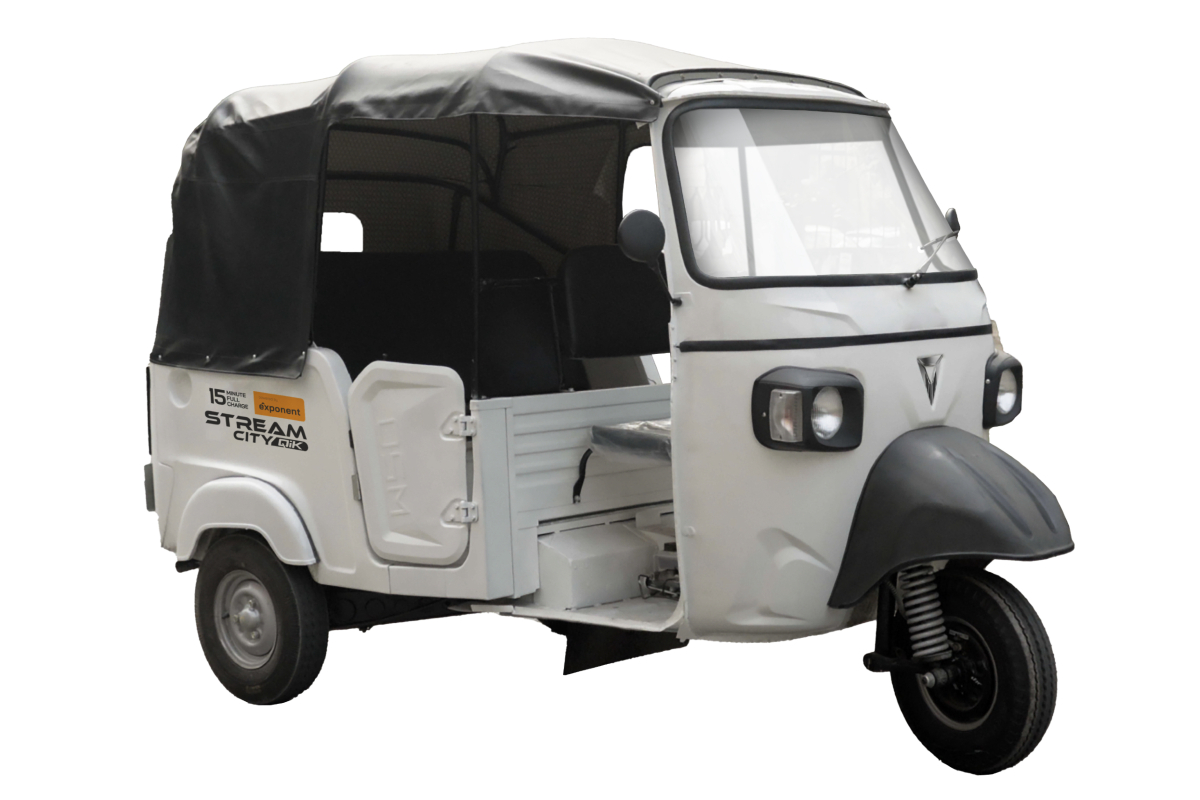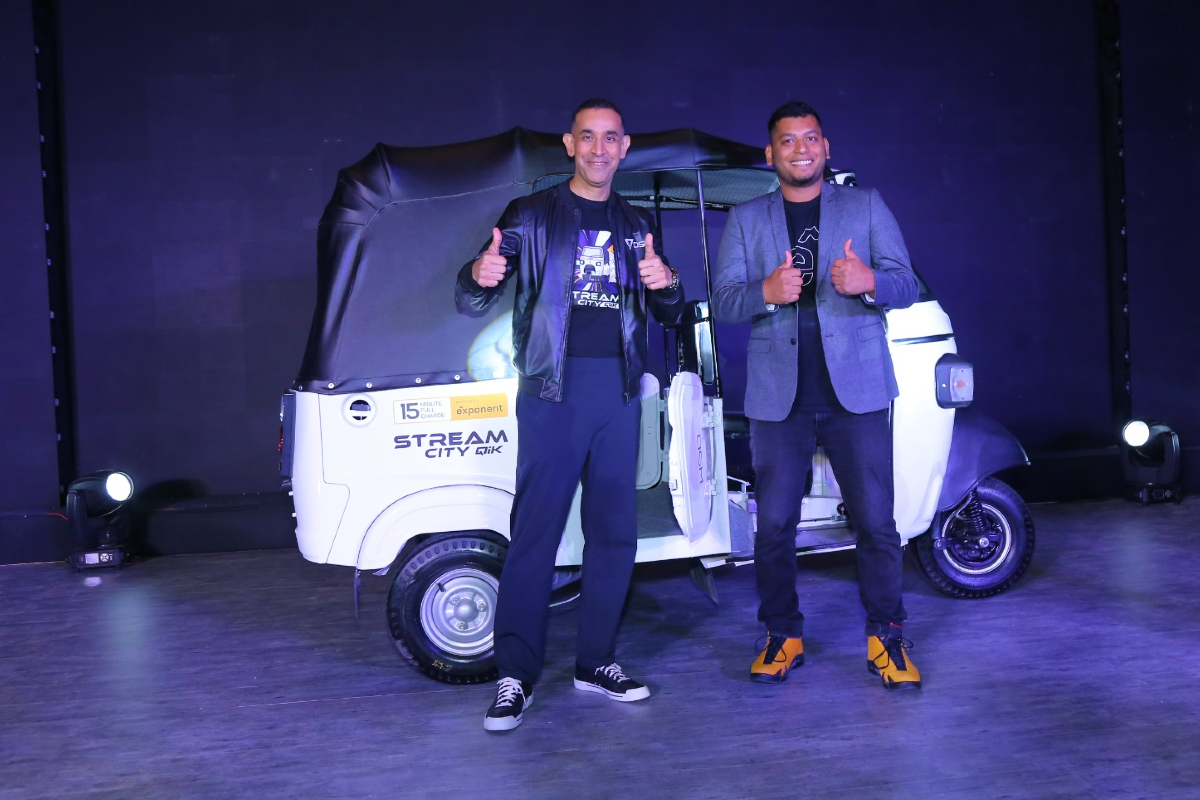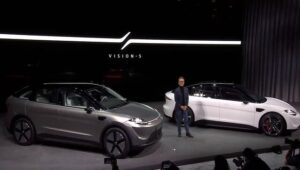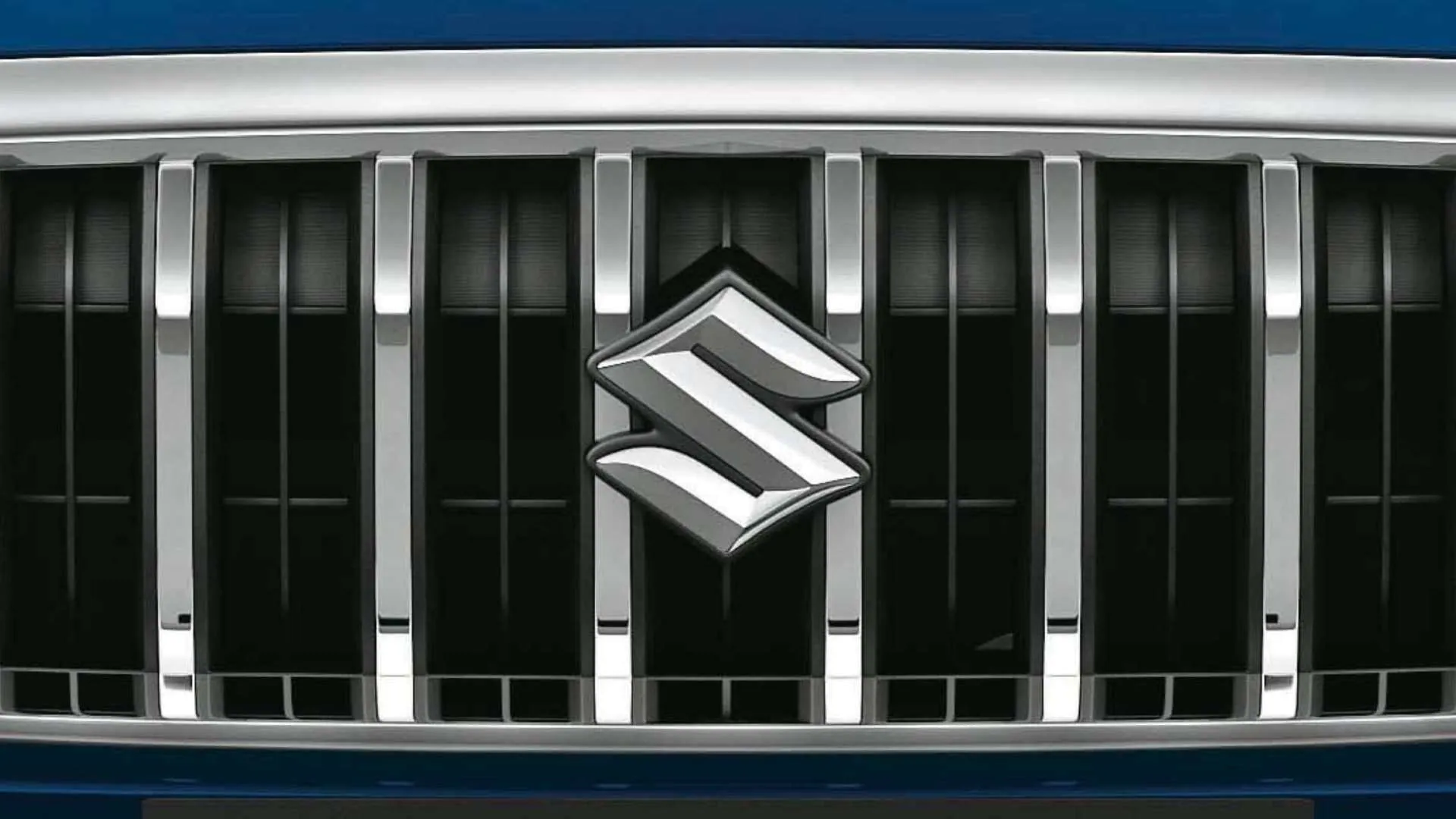India is getting an electric three-wheeler passenger vehicle that charges from 0 to 100% in 15 minutes. The launch of the new EV — a collaboration between auto manufacturer Omega Seiki Mobility and battery-tech startup Exponent Energy — comes amid India’s ambition to electrify 80% of all its three-wheelers by 2030 in an effort to reduce emissions.
The new three-wheeler, called the Stream City Qik and priced at $3,900 (324,999 Indian rupees), launched Friday and will go on sale from May 15 in Delhi and Bengaluru. It’s a take on the previous Omega Stream City and carries an 8.8kWh proprietary battery pack to deliver over 86 miles (126 kilometers) of range. It is equipped with Exponent Energy’s charging tech, which the startup claims fully charges a battery in 15 minutes when connected at the startup’s charging station (dubbed e^pump).
Currently, Exponent Energy has 60 charging stations in six cities: Delhi-NCR, Bengaluru, Chennai, Ahmedabad, Kolkata and Hyderabad. It plans to have 100 charging stations in Delhi-NCR and Bengaluru in 2024 and 1,000 stations in total by 2025, all of which will be available to drivers of the Stream City Qik, according to the company.
The partnership signifies an expansion for Exponent Energy into the new territory, as the Bengaluru-based startup previously only offered its rapid charging tech for three-wheelers to cargo and fleet operations. India’s passenger three-wheeler segment is over 4x the number of cargo three-wheelers, per government data. The segment grew by more than 43%, with over 45,000 three-wheeler passenger vehicles sold in January alone.
Three-wheeler vehicles are popular with gig workers in India who use them to transport ride-hail passengers and deliver packages. The Indian government has been incentivizing companies to spur electric three-wheeler manufacturing and has subsidized their sales to attract customers.
The partnership between Exponent Energy and Omega Seiki builds on the former’s previous partnerships. In 2022, Exponent worked with Reliance Industries-backed Altigreen and Indian conglomerate Murugappa Group-owned Montra Electric to launch cargo three-wheelers equipped with its fast charging tech. The startup also partnered with Magenta Mobility, funded by Morgan Stanley and BP Ventures, and Fyn Mobility to offer rapid charging on their fleet. Over 1,000 vehicles, completing over 100,000 charging sessions, presently have Exponent Energy’s tech, which the startup aims to grow to 25,000 by 2025.
“We started with cargo to prove out the tech,” Arun Vinayak, co-founder and CEO of Exponent Energy, told TC in an interview. “As we scaled, we realized that individual drivers really love rapid charging because these guys can’t charge their vehicles at home. And they are far more hungry to do more kilometers… they need to keep running, keep going wherever the demand is and go wherever the passenger needs to go.”
Exponent Energy and Omega Seiki Mobility ran close controller pilots for the last couple of months to test consumer behavior. They found three-wheelers carrying up to three passengers sometimes run for up to 22 hours a day, with two drivers using them sequentially to milk intra-city demand. This makes it crucial for the passenger three-wheelers to access fast charging. The other alternative to rapid charging in this case could be battery swapping, but that does not work at scale, according to Vinayak.
“Unless you rapidly charge a swap battery, you run out of batteries. And because these are swappable batteries, you are limited in the size of batteries and have a fairly limited range,” he said.
The tech behind the three-wheeler upgrade
Exponent Energy’s battery tech involves lithium-ion batteries along with its in-house battery management system, which monitors every cell in real time when on charging. Additionally, the startup has its own charging stations that use an off-board thermal management system, which transfers refrigerated water through the charging plug. This helps maintain the temperature of every battery cell while charging and makes 0-100% charging possible in 15 minutes along with a 3,000-cycle life warranty.
Vinayak told TC that Exponent Energy’s charging stations offer 10x efficiency by charging 20 to 30 vehicles daily, whereas other EV charging stations typically charge two vehicles. Similarly, setting up an Exponent charging station costs nearly $6,000 (500,000 Indian rupees), while a CNG station demands hundreds and thousands of dollars. This has restricted the availability of CNG to around 60 stations in Bengaluru, while Exponent Energy already has 40 charging stations in the city, the executive said.

Image Credits: Omega Seiki Mobility
“If you give people very rapid refueling capability, very rapid recharging capability, a reliable and dense enough network, people actually stop caring about range,” he stated.
The Stream City Qik will be initially available in Delhi and Bengaluru, with plans to enter new cities later this year. Omega Seiki Mobility is also optimistic about taking its rapid-charging three-wheeler to markets beyond India once it gains enough traction.
“I can open up markets all across the globe. We have testing going on all across Southeast Asia, Bangladesh, Africa,” Uday Narang, founder and chairman of Omega Seiki Mobility, told TC.
New Delhi-based Omega Seiki Mobility has an annual capacity of producing 20,000 vehicles, with three factories in North India and one in the eastern state of Jharkhand. Exponent Energy, on the other hand, has a monthly capacity of building 500 charging units, which it plans to increase to 3,000 by July-August.
At $3,900 (324,999 Indian rupees), the Stream City Qik is competitively priced with other electric and gas-powered three-wheelers on the market in India. Vinayak and Narang said they are not looking to beat the competition on the pricing but want to help eradicate the charging anxiety among three-wheeler drivers and increase their monthly income by up to 30%.
Founded in 2020, Exponent Energy, which counts Eight Roads Ventures, Lightspeed Venture Partners and TDK Ventures among its key investors, has raised $44.4 million so far. The startup generated an annual recurring revenue of $6 million in 2023 and aims to reach about $72 million by 2025. It is also looking to deploy its charging tech on electric buses in India later this year.










